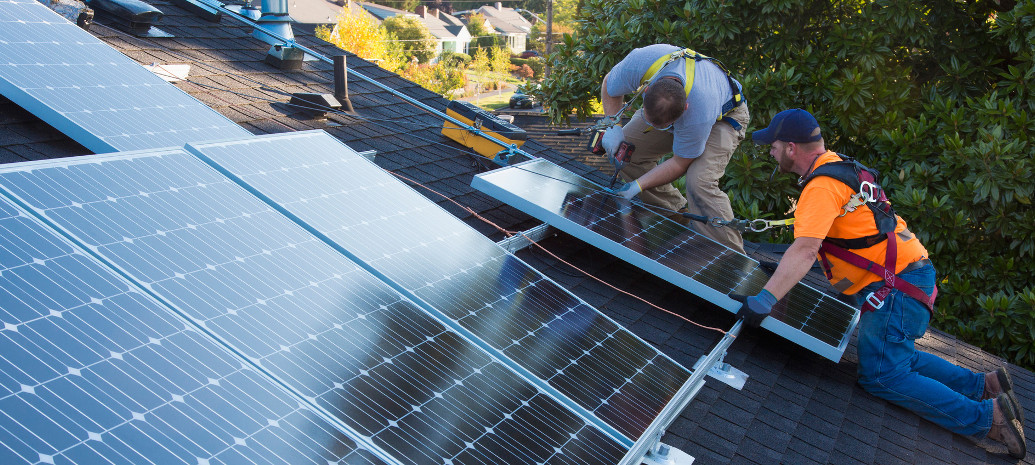The Perth-based Plico Energy announced on Friday it had secured a $2.4m strategic equity investment and a further $1.6m debt facility with the funds to be directed towards further growing its presence in the WA market.
The capital supplements a $50m infrastructure funding agreement signed in 2019 with Swiss-based investment firm SUSI Partners.
Plico Energy CEO Nuno Carneiro said the latest capital injection will be used for growth marketing initiatives.
“Plico has taken an iterative approach to rolling out our renewable solutions to date, allowing us to prove the technology, implementation process and savings potential,” he said.
“Having recently installed our 200th system in WA, we’ve now achieved good market penetration, been able to verify the disruptive model and have strong support, setting the stage for a significant growth phase for the company.
“Our mission is to provide consumers with far more control over their energy usage by creating virtual power plants (VPP) that operate behind the meter and this investment will be a significant part of the story in enabling that to occur.”
The retail arm of Starling Energy Group, Plico Energy entered the Australian renewable energy market in March 2019 with the launch of the Dunsborough Community Energy Project, the nation’s first privately funded VPP.
The company described the project as a community built, owned and managed renewable energy facility with the network of solar PV and battery systems to be centrally controlled and provided and installed for a flat fee.
At the time of the launch, a company spokesperson said the project would enable participating homeowners to generate and consume clean energy for up to 90% of their own needs, effectively ending heavy reliance on the traditional grid.
Pilco Energy customers pay a membership fee that covers the cost of the solar modules, in-home batteries and associated infrastructure. One of the company’s most popular packages, starting at $36.50 per week, comprises a 6.6 kW solar PV array, 5 Redback KVa inverter system and 7.2 KWh Pylontech (LiFePo4) battery. A larger system, comprising a 13.3 kW solar PV array, a 10 kVa inverter and a 14.2 kWh battery is priced from $69.50 per week.
In its marketing material published online, Plico Energy said the total cost of ownership of one of their systems over 25 years will be 50% of the current retailer contract.
Carneiro said the Pilco Energy approach allows people to create and consume their own solar power energy day and night and at the same time collectively build a grid-scale battery which can be used as a VPP, allowing more variable renewable energy to enter the grid.
The company’s initial target is 5000 homes with the latest capital injection to help finance the project.
The equity component of the latest capital raising was led by Euroz Hartleys and attracted support from existing shareholders and Westoz Funds Management (WFM) while Plico said a “major lender” had agreed to a $1.6m debt facility.
WFM executive director Dermot Woods said the Plico model was an exciting opportunity and a “win-win” solution for customers and governments alike.
“We are very excited about the potential for battery and solar micro-grid energy solutions and have been searching for an appropriate investment opportunity,” he said.
“We believe the Plico model provides a win-win solution for customers wanting affordable and reliable clean energy, and for state governments wishing to lower reliance on fossil fuels while maintaining a reliable transmission network.
“As investors, we believe there is huge growth potential for this sector as customer and government awareness and acceptance grows.”
This content is protected by copyright and may not be reused. If you want to cooperate with us and would like to reuse some of our content, please contact: editors@pv-magazine.com.









By submitting this form you agree to pv magazine using your data for the purposes of publishing your comment.
Your personal data will only be disclosed or otherwise transmitted to third parties for the purposes of spam filtering or if this is necessary for technical maintenance of the website. Any other transfer to third parties will not take place unless this is justified on the basis of applicable data protection regulations or if pv magazine is legally obliged to do so.
You may revoke this consent at any time with effect for the future, in which case your personal data will be deleted immediately. Otherwise, your data will be deleted if pv magazine has processed your request or the purpose of data storage is fulfilled.
Further information on data privacy can be found in our Data Protection Policy.